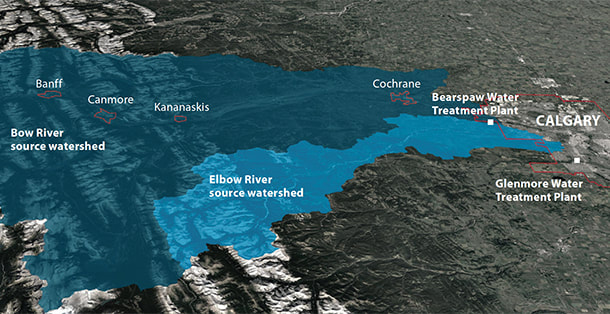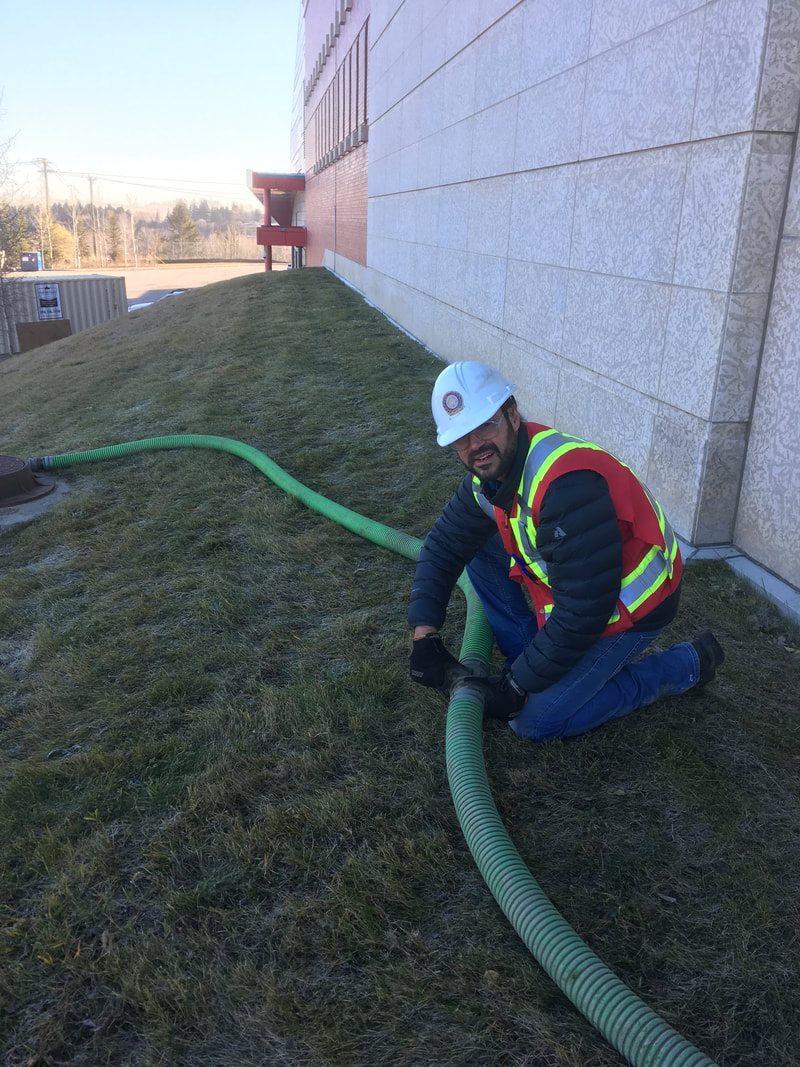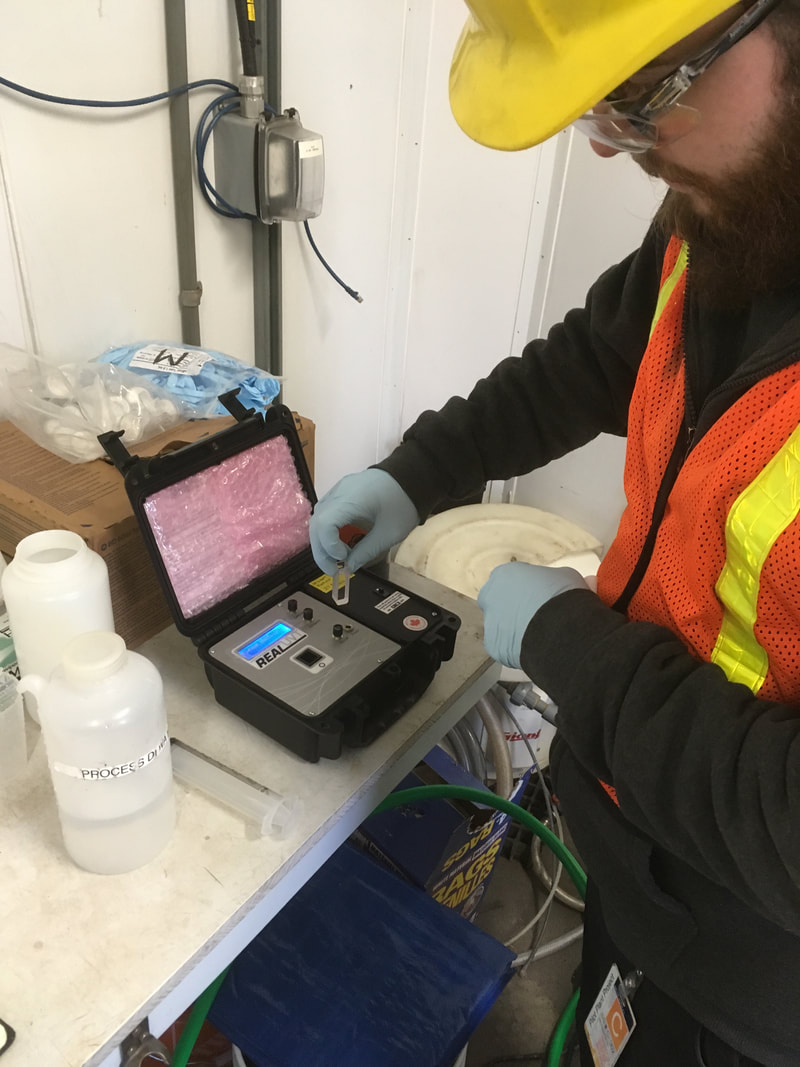|
The impacts of climate change on our environment can be seen across the globe. From wildfires to floods, natural disturbances have been exacerbated by climate change. High-quality water supplies are at significant risk from these disturbances which could result in deteriorating drinking water quality in many parts of Canada. To manage such risk, the City of Calgary partnered with the forWater Network three years-ago to better understand how to protect their water supply to ensure safe drinking water, even following major landscape disturbances. "We gain access to research concerning the mobility of nutrients, fire risk and impacts, and linear disturbances around forestry,” said John Jagorinec, Manager, Water Treatment at Calgary.  John Jagorinec, Manager, Water Treatment at Calgary John Jagorinec, Manager, Water Treatment at Calgary “Connecting with the forWater Network has helped to advance our mandate because the research topics are extremely relevant to water utilities. We gain access to research concerning the mobility of nutrients, fire risk and impacts, and linear disturbances around forestry,” said John Jagorinec, Manager, Water Treatment at Calgary. “Working with the Network has been an excellent opportunity for us to build relationships with experts in the field and understand more about what is happening at other water utilities across the country through the exchange of knowledge.” While impacts of forest management on water have been well studied, little of that work has focused specifically on how to treat that water downstream to make it safe for consumers. “The water used by the majority of Canadians, Americans, and many others globally originates in forests,” said Monica Emelko, Professor and Canada Research Chair in Water Science, Technology & Policy at Waterloo and Principal Investigator of the forWater Network. “Traditional approaches for protecting these critical water supplies cannot guard them from the potentially devastating effects of natural disturbances. The forWater Network's partnership with the Calgary and other stakeholders across Canada provides the critical new knowledge and technologies needed to build resilient, adaptive communities and ensure public health protection through the provision of safe drinking water, now and in the future.” One highlight from the partnership, is a pilot being conducted by Jesse Skwaruk, a PhD candidate in the Department of Civil and Environmental Engineering at the University of Waterloo and forWater member. Skwaruk is investigating effective water treatment for suspended solids (turbidity) and natural organic matter (NOM) that are periodically present in water following major landscape disturbances such as wildfires. While treatment methods are available to manage suspended solids, changes in NOM concentration can challenge even the most sophisticated treatment plants. Funded largely by complementary initiatives, this work provides key evidence supporting forWater’s mandate by providing insights into the impacts of disturbances (e.g., wildfire) that are more severe than forest management. Pilots such as the one being conducted in Calgary enables forWater researchers to better evaluate the suitability and relative benefits and costs of forest management approaches.
1 Comment
|
forWater NetworkThe Network provides insights into new scientific research for safe, secure drinking water---globally---which starts with resilient forests Archives
October 2023
Categories |





 RSS Feed
RSS Feed

